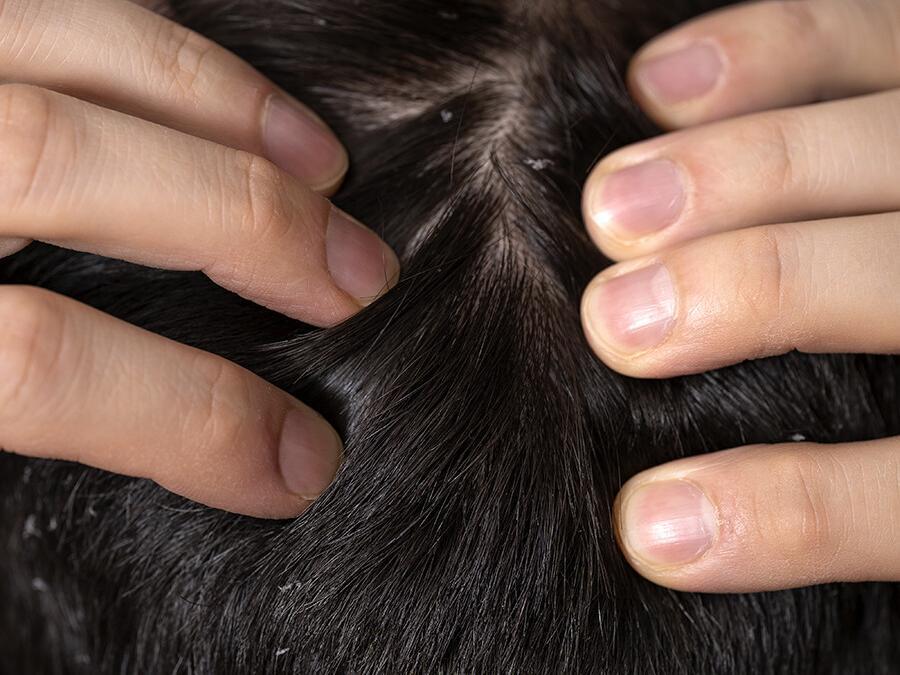Key Points to Know About Lice and Hair Loss
-
How Lice Affects Hair: Lice don’t directly cause hair loss, but the constant itching and scratching they trigger can damage the scalp and hair, leading to breakage and shedding.
-
Signs of Damage: Look for itchy scalp, red bumps, and tiny lice or eggs (nits) stuck to hair. A fine-toothed comb can help confirm if lice are present.
-
Best Treatments: Professional options like the AirAllé device effectively kill lice and nits without damaging hair.
-
Care After Treatment: Use gentle shampoos, avoid harsh products, and apply calming oils like coconut oil to help your scalp heal and support hair regrowth.
-
Get Expert Help: See a healthcare professional for a treatment plan that suits you, and follow up regularly.
-
Emotional Support Matters: Lice infestations can be stressful, but they’re common and treatable. Don’t hesitate to talk to someone about how you’re feeling.
Understanding the Link Between Lice and Hair Loss
Hair loss can happen for many reasons—genetics, stress, illness, or environment. Lice aren’t a main cause of hair loss, but the irritation and scratching they cause can lead to breakage and scalp issues. Recognizing when lice are the problem can help you take the right steps.
How Lice Can Cause Hair Damage
The constant itching from lice causes people to scratch their scalp frequently. This can damage hair follicles, leading to hair breakage or loss. In some cases, scratching can cause open sores that become infected, weakening the scalp and making hair fall out even more. Stress from the infestation can also trigger a condition called telogen effluvium, where hair sheds due to emotional or physical stress.
How to Spot Lice-Related Hair Loss
You might have lice-related hair damage if you notice:
-
Itching and red bumps on your scalp
-
Small lice or nits attached near the roots of your hair
-
Hair breaking off near the scalp, especially in spots you’ve been scratching a lot
-
Patches of thinning or baldness
-
Sores or signs of infection on the scalp
A lice comb is useful for spotting lice and nits to confirm an infestation.
Effective Treatments to Prevent Hair Loss
Quick and proper treatment can prevent more hair loss:
-
Professional treatments like the Lice Clinics DFW Control air divese use heated or cold air to kill lice and eggs without harmful chemicals or rough combing.
-
At-home treatments (shampoos or lotions) often include strong chemicals, which can cause further hair damage.
Caring for Hair After Lice Treatment
Once the lice are gone, it’s important to help your scalp and hair recover:
-
Stick to mild, gentle shampoos and avoid styling tools or treatments that can stress your hair.
-
Keep your scalp moisturized and clean.
-
Use natural oils like coconut oil to soothe irritation and encourage healing.
-
Massage your scalp gently to improve blood flow and support new hair growth.
-
Try products with calming ingredients like aloe vera or tea tree oil.
Dealing with the Stress of Lice and Hair Loss
Lice can be emotionally overwhelming. If you’re feeling anxious or embarrassed, talk to someone—whether it’s a friend, family member, or therapist. You’re not alone—lice are very common, and with the right care, you can recover both physically and emotionally.
Conclusion: Take Action Early
Knowing the connection between lice and hair loss helps you take action before things get worse. Early detection, proper treatment, and gentle aftercare are key to protecting your hair and scalp. For more help, visit www.liceclinicsdfw.com or contact them directly to book an appointment.
